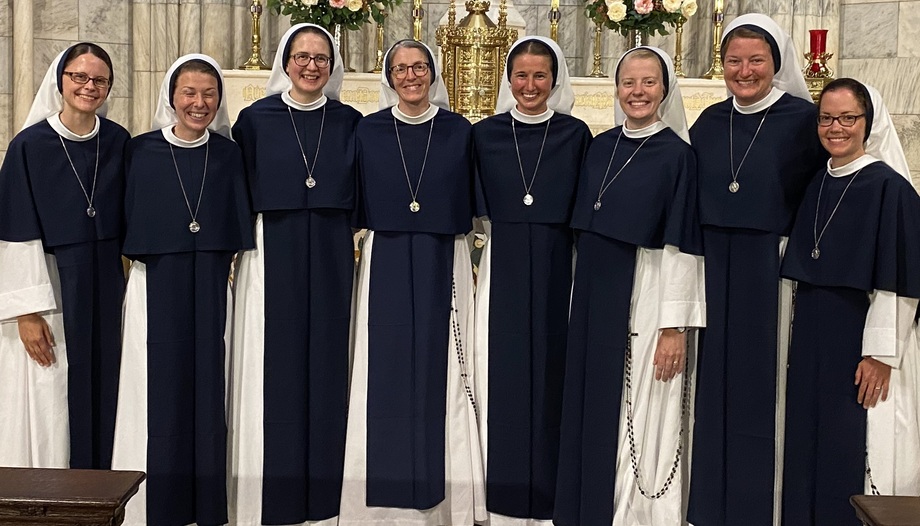Cardinal John J. O'Connor (January 15, 1920 – May 3, 2000), Archbishop of New York from 1984-2000, who founded theSisters of Lifemust have been smiling down when seven new sisters took their perpetual vows on August 5th at Saint Patrick's Cathedral in New York City.
In 1991, Cardinal O'Connor published an article entitled "Help Wanted: Sisters of Life". His vision was "for a religious community of women who would give themselves fully to the protection and enhancement of the sacredness of every human life, beginning with the most vulnerable". On June 1, 1991, eight sisters gathered in New York to form the new community of the Sisters of Life. Today, over one-hundred sisters currently serve.
The ceremony of the vows
Cardinal Timothy Dolan was the principal celebrant, and concelebrants included Archbishop Gabriele Giordano Caccia, permanent observer of the Holy See to the United Nations; Bishop James D. Conley of Lincoln, Nebraska; and New York Archdiocese auxiliary bishops, Bishop Peter J. Byrne, Bishop John J. O'Hara, and Bishop Edmund J. Whalen; New York Archdiocese vicar general Msgr. Joseph P. LaMorte and Father Enrique Salvo, rector of St. Patrick's Cathedral.
In attendance were about 1500 family members, friends, sisters from the Sisters of Life, religious brothers, priests, and supporters, all of whom were there to welcome the new sisters and witness them take their perceptual vows.
The seven sisters who professed their perpetual vows are Mary Pieta, Mercy Marie, Mary Grace, Fidelity Grace, Zelie Maria Louis, Ann Immaculee' and Catherine Joy Marie.
The facets of a diamond
Omnes had a chance to speak to Sister Marie Veritas, S.V., Denver's local superior and mission coordinator. She shared what she finds most special when they celebrate a religious profession of vows: "I'm always struck first just by the beauty of their hearts and their voices as they profess their vows".
Sr. Marie Veritas also appreciates "the tradition in our community…that you take a title, a religious title after your name…and if they so wish and felt the Lord leading them to that, and…I think there's just something so special each year, and then this year about sharing the titles of the sisters the first time you hear them".
When the new sisters profess their vows and say their names and new title aloud, "it's kind of like this further revelation of their heart, of their personal unique charism or the personal graces the Lord has entrusted to them…the mysteries the Lord has asked them to live in a particular way..." said Sister Marie Veritas.
"It's almost like seeing the facets of a diamond, and each facet reflects the light in a unique way…and each of us reflects the glory of God in such a particular, unique, and unreputable way", she added.
In his homily, Cardinal Dolan asked those taking their perpetual vows to "change the culture of death into the culture of life". Their predecessors and new colleagues have committed themselves daily to that and take their call seriously.
"I think…choosing life over death, it's like a choice that we actually make every day", stated Sr. Marie Veritas. It's being aware of the truth that you are "beloved" and "precious".
The family charisma of "Sisters of Life".
The Sisters of Life work with the most vulnerable: the unborn, the unchosen, and their call is "to protect and enhance every life".
They recognize that "with that ache of the human heart…you can look for love in the wrong place… or substitute deaths for love". They encourage those with whom they encounter to choose love and to remember "our lives matter, that we are good, that we're sacred, that we're important".
Mother Mary Concepta, S.V., elected the Sisters of Life's new mother superior earlier this year, was there to pray with and for the new sisters. Her predecessor, Mother Agnes Mary Donovan, S.V., who recently retired from her 30-year tenure, was also in attendance. It was a family affair!








